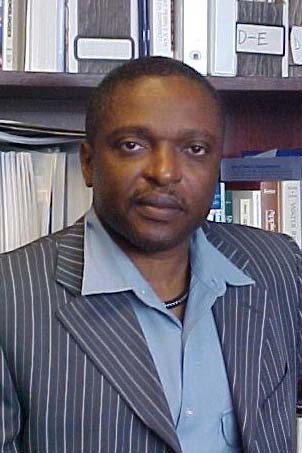The Third IASTED African Conference on
Water Resource Management
AfricaWRM 2010
Science and Technology Applications for Health and Sustainable Development
September 6 – 8, 2010
Gaborone, Botswana
INVITED SPEAKER
Impacts of Soil Erosion on Surface Water Quality in Africa: Recommended Management Systems
Abstract
Owing to climatic factors, grazing, unsustainable agricultural practice, and intermittent construction booms, large areas within cities and whole regions are devoid of vegetation or artificial surfaces. Consequently, the ground surface is exposed to agents of soil erosion: wind and water. Re-channelization and silting of rivers and streams have degraded environmental aesthetics and surface water quality in many communities Africa-wide. The economic impacts of this growing development are profound. Water treatment costs have increased due to turbidity, and in some cases, water treatment is unaffordable to local communities. In most cities, where network water supply systems are non-existent, residents resort to water wells as an alternative, thereby lowering the water table to precarious levels.Surface water quality control systems need to be improved in Africa. Upland control measures such as specification and enforcement of standards on ground exposure during construction, revegetation of exposed ground, design and construction of effective wind barriers, and rainwater channels can reduce erosion rates and sediment deposition rates in sensitive water systems. Affordable pre-treatment and full treatment systems for polluted surface water also need to be developed and implemented.
Biography of the Invited Speaker

Professor Inyang holds a Ph.D. with a double major in Geotechnical Engineering and Materials, and a minor in Mineral Resources from Iowa State University, an M.S. and B.S. in Civil Engineering from North Dakota State University, and a B.Sc. Honors in Geology from the University of Calabar, Nigeria. He is President of not only the African University of Science and Technology in Abuja, Nigeria, but also of the International Society for Environmental Geotechnology, and of the Global Alliance for Disaster Reduction. Prof. Inyang serves as the Duke Energy Distinguished Professor of Environmental Engineering and Science, and professor of Earth Science, and is the founding director of the Global Institute for Energy and Environmental Systems at the University of North Carolina-Charlotte. Over the past 20 years has also taught at DuPont University, The University of Massachusetts, Purdue University, George Washington University, and the University of Wisconsin-Platteville.
Prof Inyang has made more than two decades of technical and policy contributions to regional and global sustainable development as an educator and administrator, researcher, government official, and corporate leader. He has made exceptional contributions to knowledge advancement, technology development/implementation and national agency programs on contaminant generation process from geomaterials and energy wastes. Prof. Inyang has served as principal investigator, co-principal investigator, and implementation leader on 36 projects, has served on more than 100 technical and policy panels for both government and professional societies, has given more than 110 invited speeches around the world, and has authored more than 210 research articles, book chapters, federal design manuals, and a textbook. Prof. Inyang is the Editor-in-Chief of the Journal of Energy Engineering of the American Society of Civil Engineers, an associate editor or editorial board member of 27 refereed international journals, and a contributing editor of three books.
Among his many professional awards, Prof. Inyang was one of 10 environmental scientists honoured for their contributions to the United States of America through the USEPA, at a ceremony in Washington, DC, organized by the US government in 2002. Prof. Inyang was also the first African-American to be endowed as a distinguished professor in engineering in both the University of Massachusetts and University of North Carolina Systems. His research and professional focus are on contaminant leaching and dusting from materials, containment systems and materials for barriers, energy systems and geohazards.










